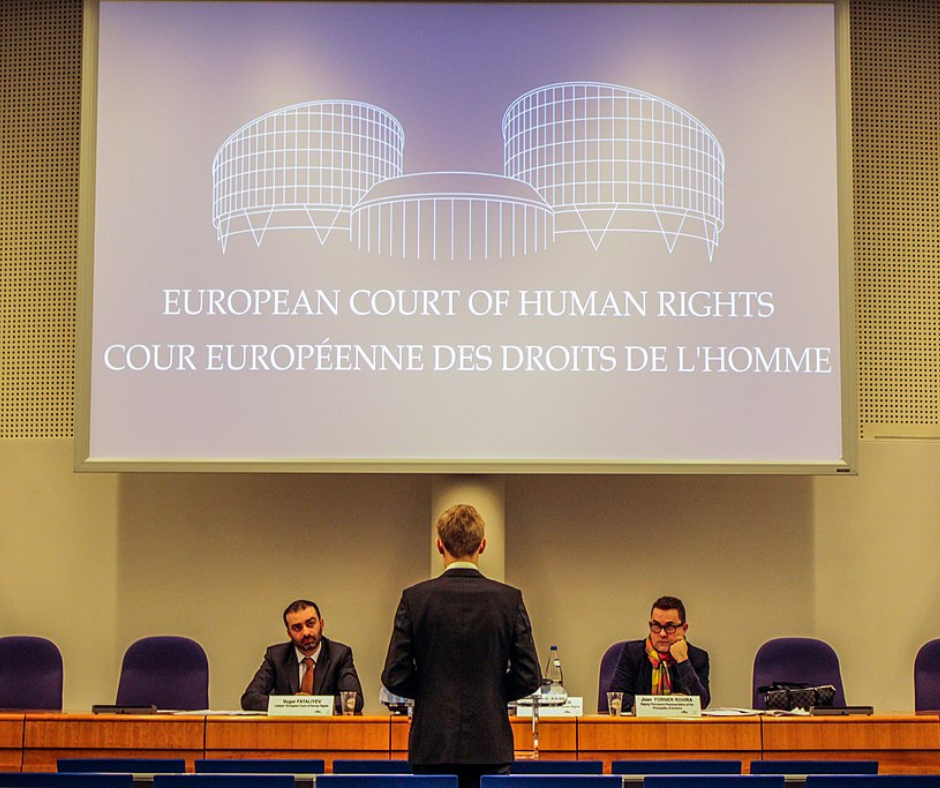
European Court of Human Rights Awards Compensation to Survivor of Torture Suffered in Turkey
The European Court of Human Rights issued a long-awaited judgment, unanimously finding that Turkey failed to investigate the torture suffered by REDRESS client A.B. in May 2003, and awarding him 10,000 Euros in compensation.
The Turkish Constitutional Court having already decided that the State’s investigation – which started in 2012 – had not been conducted with sufficient due diligence, and had not been sufficient to identify the possible perpetrators of the alleged torture, the ECtHR also found failures to:
- determine whether A.B. had been subjected to a medical examination during or after his detention;
- draw proper conclusions from its interviews with witnesses;
- interview either the nurse who treated him, members of A.B.’s family or (with one exception) residents of his village, all of which could have helped to confirm or dismiss the allegations made.
Although the ECtHR recognised that the Prosecutor, police and judicial authorities did undertake a number of investigative steps, “these acts were not capable of shedding light on the applicant’s allegations that he had been the victim of ill-treatment during his detention”.
The ECtHR also considered that the sum awarded by the Turkish Constitutional Court had been inadequate, in light of the ECtHR’s practice in comparable cases. It awarded 10,000 Euros in compensation to A.B., on top of what had already been ordered by the domestic Court (around 1500 Euros plus costs).
The decision stresses the importance which the ECtHR places on the State obligation to conduct an adequate and effective investigation into allegations of torture, and on the need for adequate compensation to be paid if the State fails to do so.
A.B. is a Turkish-British national who was arrested, detained and tortured in Turkey in 2003, over allegations that he was assisting the Kurdish Workers Party (PKK). He fled the country later that year and sought – and obtained – asylum in the UK.
From 2000 to 2003, A.B. and others in his village were frequently harassed by the Turkish police. They faced unlawful assaults and their property was destroyed.
On 28 May 2003, A.B. was violently arrested, along with another man, when their village was surrounded by police. He was kicked hard in the spine and forced into an unmarked van, before being taken to a police station about 20 kilometres away.
A.B. was held and interrogated by the police for three days in a town in eastern Turkey. During the interrogation, he was verbally abused and threatened. At one point, a gun was forced into his mouth and he thought he was going to die.
A.B. was accused of spying for the PKK, which he denies. There is a long-standing and ongoing conflict between the PKK and the Turkish state, which regards the group as a terrorist organisation.
Throughout his three days in detention, A.B. was repeatedly and violently tortured. He suffered extensive beatings, electric shocks, sexual torture and sleep deprivation. He was not given proper medical attention. He was continually denied access to a lawyer and forced to sign documents without reading them.
After about three days, A.B. was taken to a prosecutor during the night. He later appeared before a judge and was charged with aiding and abetting terrorism, alongside a number of others who had also been ill-treated. They could not deny the charges or speak out about the torture they had suffered.
On 1 June 2003, A.B. was moved to a prison, where he remained for more than eight weeks. While in prison he was denied adequate food and water and frequently threatened with physical punishment.
On the day of his release, 22 July 2003, he had been taken with the other prisoners to another town, about 200 kilometres away. Here, they appeared before a military tribunal, the State Security Court. They denied the charges put to them and withdrew their confessions, with the help of lawyers. Later that day they were taken back to the prison and released on bail.
In August 2003, A.B. fled Istanbul and came to the UK. He claimed asylum and subsequently obtained British citizenship. The Medical Foundation for the Care of Victims of Torture (now, Freedom from Torture), helped to document the effects of his torture in a report. He still lives with these effects and suffers from PTSD and depression, as well as lasting physical injuries.
A.B. has spent over 10 years seeking redress for what happened to him. Initially, he filed a criminal complaint in Turkey in March 2012. His complaint was dismissed, and the appeal was rejected.
A.B. then filed the case before the Turkish Constitutional Court in August 2013, asking the Court to find that there had been a substantive violation and to award compensation. Although the Constitutional Court made a very small award of compensation, it rejected the allegation of torture. In doing so, it failed to consider crucial evidence. While the Court ordered a new investigation to take place, no new criminal investigation has been initiated to date. There is no evidence that anyone involved in A.B.’s torture has been held to account.
REDRESS submitted A.B.’s case to the Europan Court of Human Rights in September 2016, over seven years ago.
Photo: ELSA International, CC BY-SA 2.0 via Wikimedia Commons
